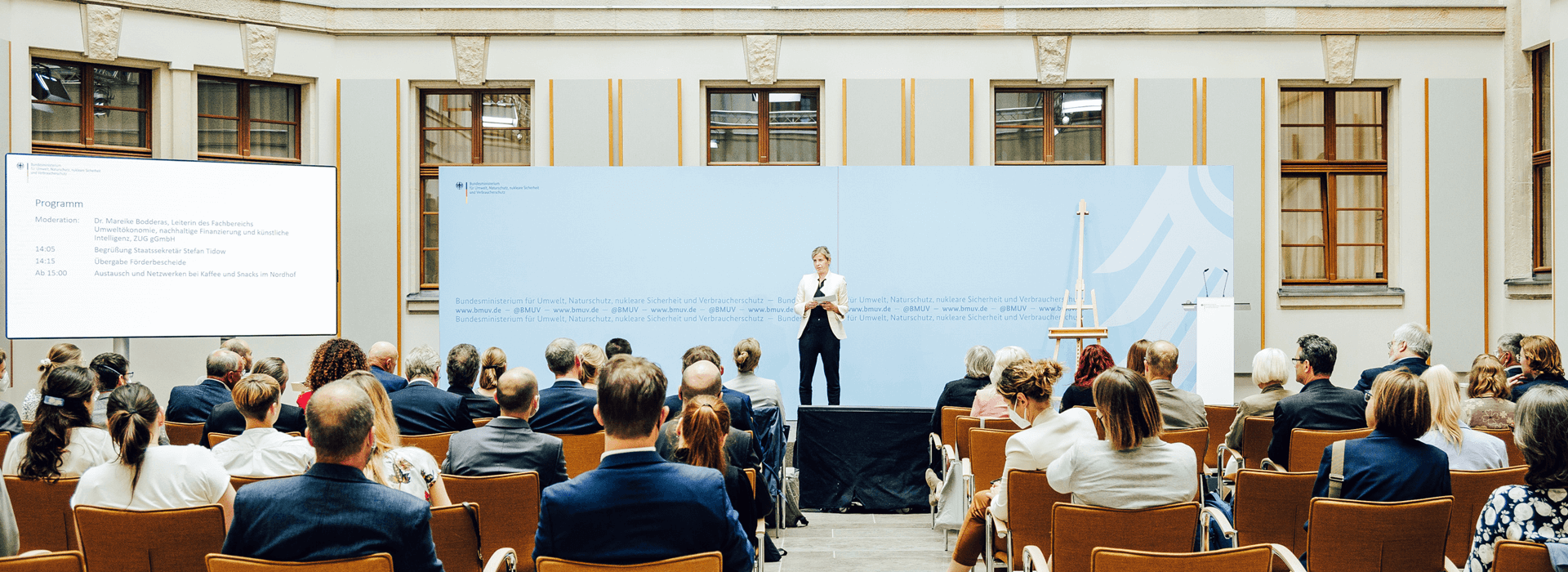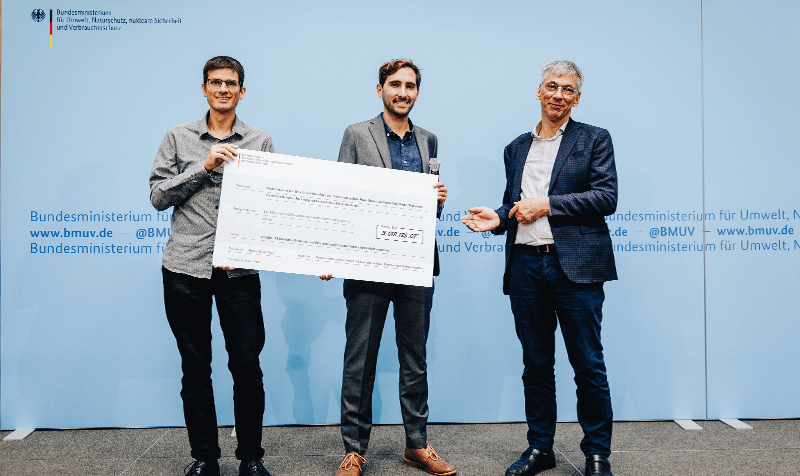AI lighthouses
Artificial intelligence (AI) facilitates a wide range of opportunities for the targeted application of resources, as well the efficient protection of the environment and climate. Among other things, AI innovations can promote sustainable consumption, accelerate the expansion of renewable energy, detect plastic waste in the oceans or simplify the transition to sustainable mobility.
With the funding initiative “AI Lighthouses for the Environment, Climate, Nature and Resources”, since 2019 the BMUV has been funding projects that utilize AI to address ecological challenges and which set an example for environmental, climate and nature-friendly digitalization. The initiative, an important contribution to the German government’s AI strategy, aims to establish Germany and Europe as leading AI locations and accelerate the responsible development and utilization of AI.
Research expertise for the energy transition
At fortiss, the research project AuSeSol-AI (AI methods for autonomous and self-optimizing solar energy generation) is conducted in the competence fields Architectures and Services for Critical Infrastructures and Machine Learning. It was created in order to use AI processes to optimize solar-thermal energy generation as an autonomous, self-optimizing system with integrated storage capacity. Energy storage plays a crucial role in the transition from fossil to regenerative energy sources by harmonizing the fluctuating supply with the energy needs of industry and private households. The goal is to increase the economic viability of this type of environmentally-friendly, renewable energy production.
The foundation of the project is the vast quantities of measurement data captured during the operation of concentrated, solar-thermal collectors. AI-based pattern detection processes can identify correlations from this data, which is too voluminous for humans to manage, and then allow conclusions to be drawn from it. The project is also examining the potential and practicality of various AI approaches.
The AuSeSol-AI project, which is scheduled to run from the mid 2022 to mid 2025, was awarded a grant totaling 3 million euros. Apart from fortiss, the other project participants include the German Aerospace Center (DLR), Concentrating Solar Power España S.L (CSPS), Industrial Solar GmbH, Technical University Munich and Forschungszentrum Jülich GmbH.



